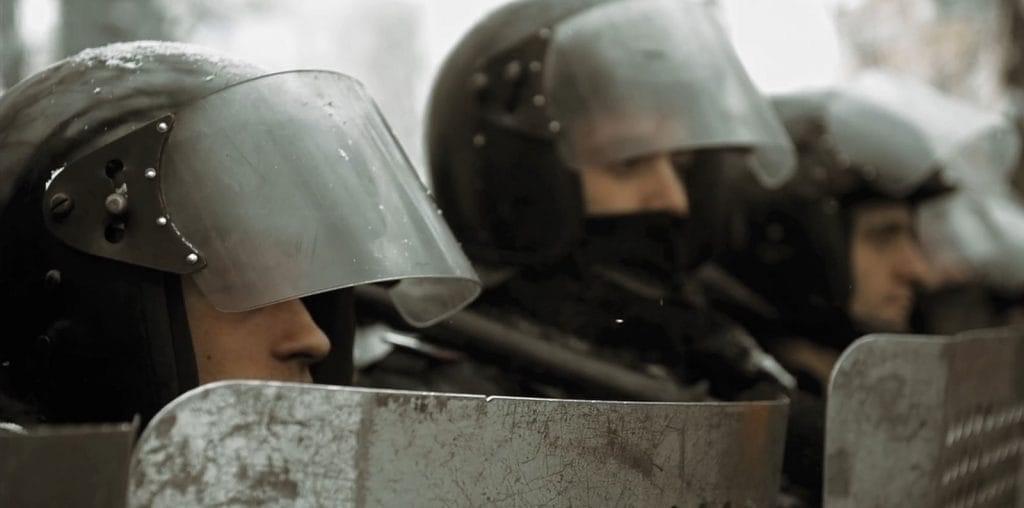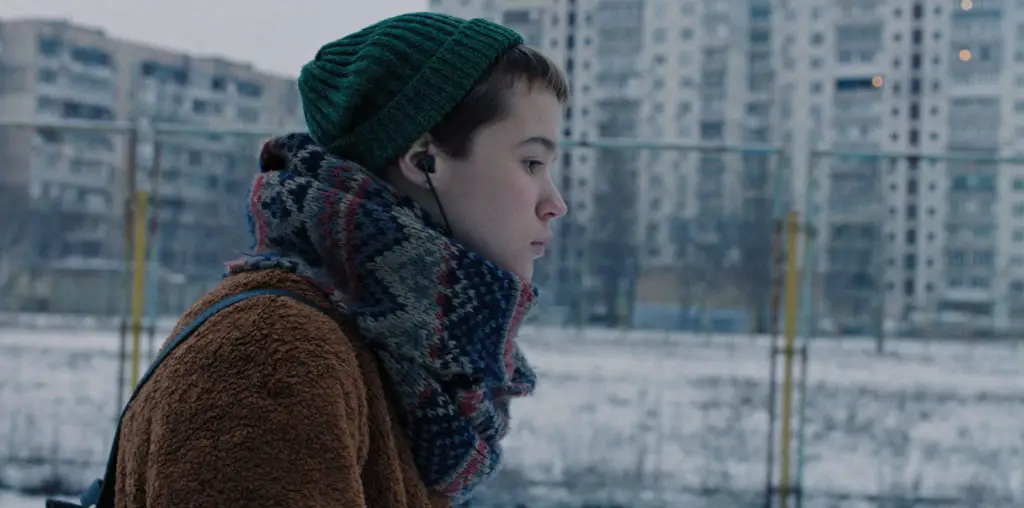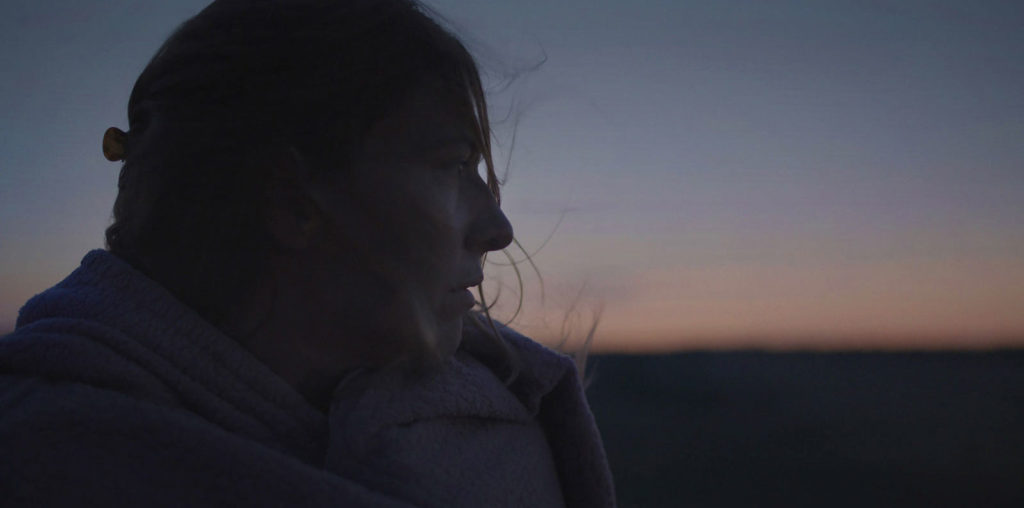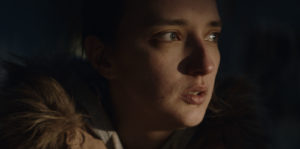
Like breaths of air in a suffocating chamber, traces of humanity surface intermittently in writer-director Natalya Vorozhbit’s unforgettable “war is hell” drama-verging-on-horror Bad Roads. Consisting of disparate, thematically-related vignettes, the film offers a raw, uncompromising glance into the abyss, where childhoods are forgotten, people morph into sadistic monsters, and ethics and morals have utterly disintegrated. Faint rays of light penetrating the ink-black darkness provide a modicum of relief from the relentless misery. It’s a visceral, powerful experience but beware: the film is decidedly not for the faint of heart. It’ll burrow itself into your head for a long, long time.
Set in Donbass, Ukraine, the narrative traces several incidents that combine to form a somber portrait. A drunk driver who misplaced his passport is scrutinized by a duo of soldiers upon crossing a border, then almost sent to a rat-infested jail cell. Upon discovering the precious document in his car, the man – a headmaster of a nearby school – seems to recognize one of his female students and begs the soldiers to spare her. Vorozhbit then smoothly shifts focus to a young woman at a bus stop, nibbling on sunflower seeds while explosions erupt around her. The girl’s grandmother begs her to come home.
The next segment, perhaps the most difficult to watch, narrows down on a trapped woman, abused and sodomized by her cruel captor. The filmmaker wisely keeps him in the shadows – a revolting entity, spouting vulgarities at his victim in between beating her savagely. And yet, she digs and digs until she discovers something resembling compassion simmering faintly beneath the callous exterior. The final piercing chapter sees a well-off woman run over a farmer couple’s hen in her “expensive Peugeot;” her offer to pay for it turns into a tense negotiation, but then a baby’s distant cry spurs a rediscovery of empathy.
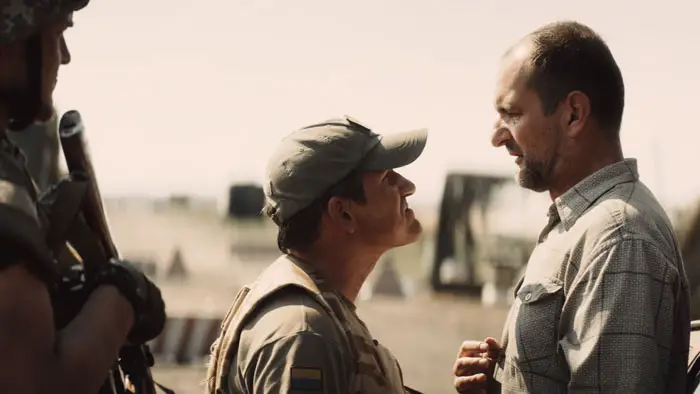
“…a revolting entity, spouting vulgarities at his victim in-between beating her savagely.”
Bad Roads functions on multiple levels: an indictment of war and violence, a study of war’s dehumanizing effect, a sardonic dissection of class differences, and the value we assign to things – from chickens to human lives – and how that value fluctuates depending on circumstances. Vorozhbit, with unparalleled realism, depicts a place where makeshift Kalashnikovs are kept in the car trunk for school practice, where bumming a cigarette could easily lead to sexual assault, where a friend offers you advice on how to act when you’re being raped.
Lacking a swelling soundtrack or any semblance of sentimentality, the film emphasizes its increasingly heavy silences, mirroring the emotional void it portrays; silences punctured only by the occasional gusts of wind, soft-spoken phrases, screams of pain, and, crucially, the incessant drip of a faulty faucet. The days are hopelessly grey; food stores seem on the verge of crumbling; the titular roads are indeed so bad one can barely drive on them. “You’re human, right?” a victim asks her demented torturer. “No,” comes the simple, nonchalant reply.
Thankfully, Vorozhbit is too skillful a filmmaker to let Bad Roads suffocate in its own relentlessness. A warm heart beats subliminally throughout the narrative, a tinge of hope that may be gasping for air but remains vibrant, especially when juxtaposed against the disheveled, rotten backdrop. “Shall we go home or to the shelter?” a grandmother wonders. That’s a question no human being should ever be asking. Vorozhbit is acutely aware of that, pondering the senselessness of it all. You’ll be pondering it for weeks after watching her near-masterpiece.
For screening information, visit the Bad Roads official website.
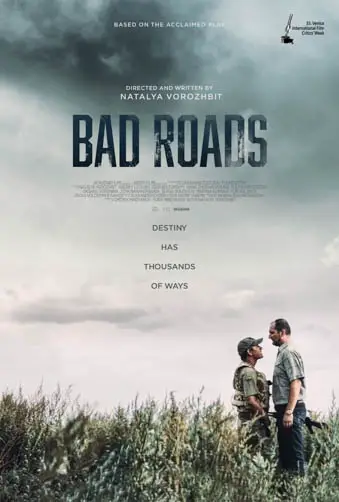
"…unforgettable..."
